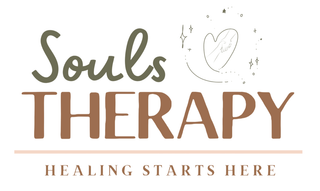The Key to Emotional Freedom
In a world that constantly demands your time, energy, and attention, learning to set boundaries is not just a luxury—it's a necessity. Boundaries are the invisible lines that define what you are willing to accept and what is off-limits in your relationships, work, and personal life. They protect your peace of mind, nurture your self-worth, and create space for genuine connections.
Yet, many people struggle with the concept of boundaries, often fearing rejection, guilt, or conflict. This blog post will guide you on how to embrace the art of setting boundaries, helping you reclaim your time and energy to live a more peaceful and fulfilling life.
What Are Boundaries and Why Do They Matter?
Boundaries are the limits we establish to protect our physical, emotional, and mental well-being. Think of them as a protective fence around your personal energy. Without boundaries, you may find yourself drained, overwhelmed, or even resentful.
Setting boundaries matters because:
- They protect your peace: Boundaries keep toxic behaviors and undue stress at bay.
- They improve relationships: Healthy boundaries foster mutual respect and understanding.
- They enhance self-esteem: Saying no when needed is an act of self-respect.
Boundaries are not about shutting people out; they are about honoring yourself while still valuing others.
The Signs You Need to Set Boundaries
How do you know if you need stronger boundaries? Here are some common signs:
- Constant exhaustion: You feel physically or emotionally drained by your commitments.
- People-pleasing tendencies: You say yes to avoid disappointing others, even at your expense.
- Resentment: You feel taken advantage of in your relationships.
- Overcommitment: Your schedule leaves no room for self-care or relaxation.
- Difficulty saying no: You fear conflict or rejection if you assert your needs.
Recognizing these signs is the first step toward reclaiming your peace and energy.
How to Set Boundaries Without Feeling Guilty
One of the biggest hurdles to setting boundaries is guilt. You may worry about how others will react or feel selfish for putting yourself first. Here are compassionate strategies to help you set boundaries guilt-free:
-
Define Your Needs: Identify what drains your energy and what makes you feel supported. For example, you may need uninterrupted time for self-care or clear communication in relationships.
-
Communicate Clearly: Use "I" statements to express your boundaries without placing blame. For example, "I need some quiet time after work to recharge."
-
Start Small: Practice setting boundaries in low-stakes situations, like declining a minor request.
-
Acknowledge Your Feelings: It’s normal to feel discomfort when setting boundaries initially. Remind yourself that protecting your well-being is not selfish—it’s necessary.
-
Stand Firm: People may test your boundaries, especially if they’re used to you being overly accommodating. Stay consistent and gentle in reinforcing them.
Boundaries in Relationships: A Foundation for Healthy Connections
Boundaries are essential in all types of relationships—romantic, familial, friendships, and even professional. Healthy boundaries create trust, respect, and emotional safety.
Examples of Relationship Boundaries
- Romantic Relationships: Agreeing on how to handle conflicts or spending time apart to recharge.
- Family Relationships: Setting limits on discussions about sensitive topics or balancing family obligations with personal time.
- Friendships: Saying no to last-minute plans if you need rest or avoiding gossip that makes you uncomfortable.
- Work Relationships: Establishing clear expectations about work hours and personal availability.
Boundaries prevent resentment and allow relationships to thrive by ensuring both parties feel valued and respected.
The Peace That Comes from Setting Boundaries
When you start setting boundaries, you may feel a shift—not just in your relationships but within yourself. Here’s what you can expect:
- More Energy: With fewer drains on your time and emotional reserves, you’ll feel more energized and focused.
- Improved Self-Esteem: Each time you honor your needs, you reinforce your self-worth.
- Better Relationships: Healthy boundaries foster trust, mutual respect, and deeper connections.
- Inner Peace: Knowing you are in control of your time and energy creates a profound sense of calm.
Remember, boundaries are not walls; they are bridges to healthier, happier relationships and a more balanced life.
Overcoming Common Challenges in Setting Boundaries
Even with the best intentions, setting boundaries can feel challenging. Here’s how to navigate some common obstacles:
-
Fear of Rejection: Understand that people who respect you will honor your boundaries. Those who don’t may not have your best interests at heart.
-
Cultural or Familial Expectations: It can be difficult to set boundaries in cultures or families that prioritize collectivism. Frame your boundaries as a way to ensure you can show up as your best self for others.
-
Conflict Avoidance: Setting boundaries may lead to discomfort, but it’s better than the long-term harm of neglecting your needs.
-
Perfectionism: You don’t have to get it right all the time. Boundary-setting is a skill that improves with practice.
Take the First Step Toward Peace
At SOULS THERAPY, I understand the courage it takes to set boundaries and prioritize your well-being. That’s why I have created resources like the Setting Boundaries Workbook and worksheets to support you on this journey.
This workbook is packed with:
- Guided exercises to help you identify and communicate your boundaries.
- Reflection prompts to uncover patterns and triggers.
- Strategies for overcoming guilt and standing firm in your boundaries.
Your peace of mind is worth the effort. Visit SOULS THERAPY today and discover how my workbook can help you reclaim your time, energy, and emotional freedom.
Your journey to peace begins with a single boundary. Let me help you take that step.

